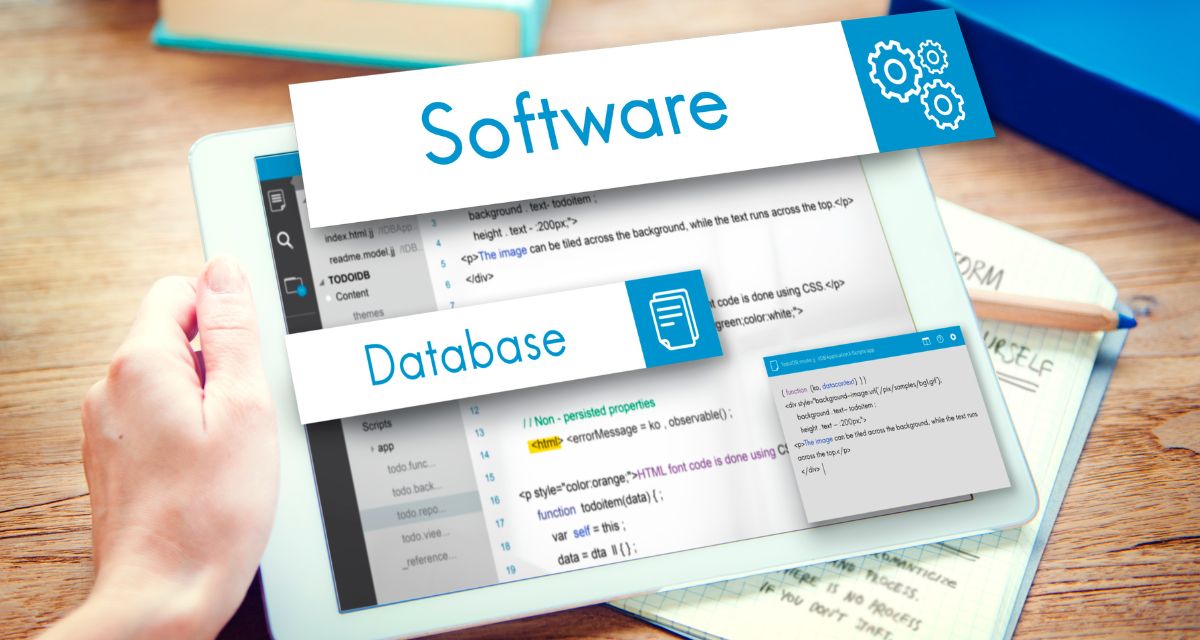Running a small business often feels like juggling multiple tasks at once. Each department—from sales to finance—requires attention, and keeping everything in sync can be overwhelming. This is where ERP systems for small businesses step in.
Enterprise Resource Planning systems integrate all your business functions into a cohesive system, acting as a central hub to streamline operations and boost efficiency.
However, is ERP beneficial for small businesses? Does it come with challenges? This post will explore the pros and cons of implementing ERP for small businesses, helping you decide if this game-changing technology is right for your company.
Let's explore how ERP can level the playing field in today's competitive market.
Why Consider Enterprise Resource Planning for Your Small Business?
ERP systems integrate all your business functions into a cohesive system, acting as a central hub to streamline business operations and boost efficiency. Initially designed for larger organizations, many ERP software solutions offer significant advantages for smaller businesses. They enable small enterprises to operate as efficiently and effectively as their larger counterparts by integrating all business processes and data into a unified system.
Cloud-based ERP solutions have made it easier for small businesses to access powerful business intelligence and analytics tools. These systems can help companies of all sizes streamline business processes, improve decision-making, and drive growth.
Whether you're considering SAP Business One , Microsoft Dynamics 365 Business Central, ERPnext , Odoo ERP, or other small business ERP solutions , choosing the right and best ERP software can transform your business operations and set you up for success. It's crucial to evaluate how each solution can streamline your business processes and provide insights into business performance.

Illustration of a woman is examining the performance of her online small business on both her smartphone and laptop (DOK.PEXELS/Andrea Piacquadio)
What Type of Small Businesses Will Benefit from ERP Software?
Before we delve into the pros and cons, let's identify which types of small businesses stand to gain the most from ERP implementation:
-
Businesses with Complex Operations:
- Example: A small manufacturer managing inventory, production schedules, and supply chain logistics.
- Why it works: ERP systems can help small businesses integrate these functions, providing real-time data for effective resource management.
-
Rapidly Growing Businesses with Scalability Needs:
- Example: An e-commerce startup experiencing exponential growth.
- Why it works: Cloud-based solutions offer scalable modules that grow with your business, preventing operational chaos and supporting business growth.
-
Businesses in Regulated Industries:
- Example: A small pharmaceutical company needs to maintain strict compliance.
- Why it works: ERP software for small businesses often includes compliance management features, reducing the risk of costly fines.
-
Customer-Centric Businesses with High Transaction Volumes:
- Example: A boutique retailer with multiple locations and an online store.
- Why it works: Integrated Customer Relationship Management (CRM) modules provide a centralized view of customer interactions, helping businesses manage customer relationships more effectively.
When looking for an ERP solution, it's essential to understand your business needs and choose the best ERP system that aligns with your specific requirements. Small business owners should consider factors such as the cost of an ERP, the level of customization required, and whether a cloud-based or on-premise ERP is more suitable for their operations.
Remember, every business is different, and the suitable ERP for your small business will depend on your unique business requirements and growth plans.

Benefits of ERP Systems for Small Businesses
- Enhanced Efficiency and Scalability: ERP solutions optimize resources by automating repetitive tasks and streamlining business operations. As your business grows, the system scales with you, adding functionalities without a complete overhaul. Scenario: A small online retailer implements cloud ERP, automating order processing and inventory management. As sales increase, the system easily accommodates the higher volume without additional staff, improving business efficiency.
- Data-Driven Decision Making: ERP provides centralized, real-time data across all departments, enabling swift, informed decisions crucial for small business agility. Business intelligence and analytics tools help small businesses understand their performance and make data-driven decisions. Scenario: A boutique marketing agency uses ERP software to track project profitability in real time, allowing it to adjust resource allocation for maximum efficiency quickly.
- Improved Financial Management: ERP systems enhance cash flow management by providing insights into financial health, improving invoicing accuracy, and ensuring timely payments. Many ERP solutions integrate advanced accounting software features, helping small businesses manage their finances more effectively. Scenario: A small construction firm uses ERP to track expenses across multiple projects, identifying cost overruns early and adjusting budgets accordingly.
- Enhanced Customer Engagement: With detailed customer data at their fingertips, small businesses can offer personalized experiences that build loyalty. CRM integration in ERP systems allows businesses to manage customer relationships more effectively. Scenario: A local bakery uses ERP-integrated CRM to track customer preferences, sending personalized promotions that boost repeat business.
- Competitive Edge: ERP allows smaller businesses to operate with the efficiency of larger competitors, leveling the playing field. Cloud-based solutions, in particular, give small businesses access to enterprise-grade tools at a fraction of the cost. Scenario: A small electronics distributor uses ERP to optimize inventory levels, matching the quick delivery times of larger competitors.
These benefits demonstrate how ERP systems can help small businesses streamline operations, improve decision-making, and drive growth.
Don't miss out on our free ERP consultation.
Contact us
Disadvantages of ERP Systems for Small Businesses
- High Initial and Ongoing Costs: The investment required for ERP can strain a small business's initial and ongoing budget. While cloud-based solutions often have lower upfront costs, the total cost of ownership over time can still be significant for smaller businesses. Scenario: A startup invests heavily in ERP, leaving little budget for marketing, potentially slowing growth. Small business owners must carefully consider the cost of an ERP system against their available resources.
- Implementation Challenges: Small businesses often lack the internal expertise for smooth ERP implementation, leading to reliance on costly external consultants. The complexity of integrating ERP with existing business applications can be daunting. Scenario: A small accounting firm struggles with the implementation, causing temporary disruptions in client services. Successful implementation often requires careful planning and change management.
- Training and Change Management: The time and resources needed for staff training can divert attention from core business activities. Employees may resist new workflows and processes, impacting short-term productivity. Scenario: A family-owned restaurant implements ERP, but staff resistance to new processes initially slows down service. Comprehensive training programs are essential for successful adoption.
- Operational Disruption Risks: Implementation and upgrades of on-premise ERP can cause downtime, which small businesses may struggle to absorb. Cloud-based ERP systems can mitigate some risks but may introduce other concerns like internet dependency. Scenario: A small manufacturer faces production delays during ERP implementation, temporarily affecting customer orders.
- Customization Constraints: Small businesses may struggle to find the right balance between customization and cost-effectiveness. While many ERP systems are designed for small businesses, they may not perfectly fit every company's unique processes without costly modifications. Scenario: A niche service provider finds that standard ERP modules don't quite fit their unique processes, requiring costly customizations.
- Vendor Dependency: Small businesses can become overly reliant on their ERP vendor, potentially limiting future flexibility. This is particularly true for cloud-based ERP solutions where data is stored on the vendor's servers. Scenario: A small retailer struggles to switch to a more suitable ERP system due to data migration complexities and vendor lock-in.
Understanding these potential drawbacks is crucial when evaluating ERP options. Small businesses seeking an ERP system should weigh these cons against the potential benefits carefully.

When ERP Might Not Be the Right Solutions for Small Business
While ERP offers many benefits, it's not always the best solution for every small business. Here are the types of businesses that won't gain any benefits from what the ERP systems offer:
- Businesses with Simple Operations: If your business has straightforward processes, like a single-location service provider, the complexity of ERP may be unnecessary. More straightforward accounting software or standalone business applications might suffice in such cases.
- Budget-Constrained Businesses: If the potential ROI isn't precise or implementation costs would significantly hinder other crucial investments, ERP might not be the right choice. Small businesses will have many software options, and sometimes, a combination of targeted solutions can be more cost-effective than a complete ERP system.
- Businesses Not Ready for Digital Transformation: If your company isn't prepared for the significant changes that come with ERP implementation, it might be better to start with smaller steps toward digitization.
- Very Small Teams: For businesses with just a handful of employees, the overhead of managing an ERP system might outweigh its benefits. More straightforward tools for small businesses might be more appropriate in these cases.
Key Considerations Before Implementing ERP
Before deciding on ERP implementation, consider the following:
- Operational Complexity: Assess whether your business operations require the comprehensive integration of ERP.
- Growth Projections: Consider your business growth plans. If rapid expansion is on the horizon, an ERP system might be a wise investment.
- Budget: Evaluate not just the initial cost but the total cost of ownership, including ongoing fees, training, and potential customization.
- Vendor Reliability: Research potential ERP vendors thoroughly. Look for providers with experience serving small and midsize businesses in your industry.
- Cloud vs. On-Premise: Decide whether a cloud-based ERP system or an on-premise solution better suits your business needs and IT infrastructure.
- Scalability: Ensure the ERP solution can grow with your business, accommodating increased users, transactions, and functionality as needed.
- Integration Capabilities: Check if the ERP can easily integrate with other business applications you currently use or plan to adopt.
Is ERP Solution the Right Business Management Software for Your Small Business? A Decision Framework
Ask yourself:
- Are my current systems causing inefficiencies?
- Am I struggling to get clear insights into business performance?
- Is my business growing rapidly or planning to scale soon?
- Can I afford the initial and ongoing costs of ERP?
- Do I have the resources to manage the implementation and training?
- Will an ERP system significantly improve my business efficiency and decision-making?
- Does my business need the level of integration and functionality that ERP provides?
If you answered "yes" to most of these questions, ERP might fit your small business well. However, if you're unsure, it might be worth consulting with an ERP specialist or starting with a smaller-scale business intelligence solution to assess your needs.
Your Next Move: Choose the best ERP System for Small Business
ERP systems can be a powerful tool for small businesses, offering improved efficiency, enhanced data accuracy, and long-term cost savings. However, they also come with significant challenges and costs that must be carefully considered.
As you contemplate whether ERP is right for your small business, remember that the goal is to find a solution that supports your unique needs and growth trajectory. Take the time to assess your operations thoroughly, consult with experts, and perhaps even start with a pilot program to ensure alignment with your goals.
Choose an ERP system that aligns with your business needs. Contact us for the right consultation on how ERP can benefit your small business. Whether you choose to implement ERP now or later, the key is to stay focused on what will truly drive your business forward.
